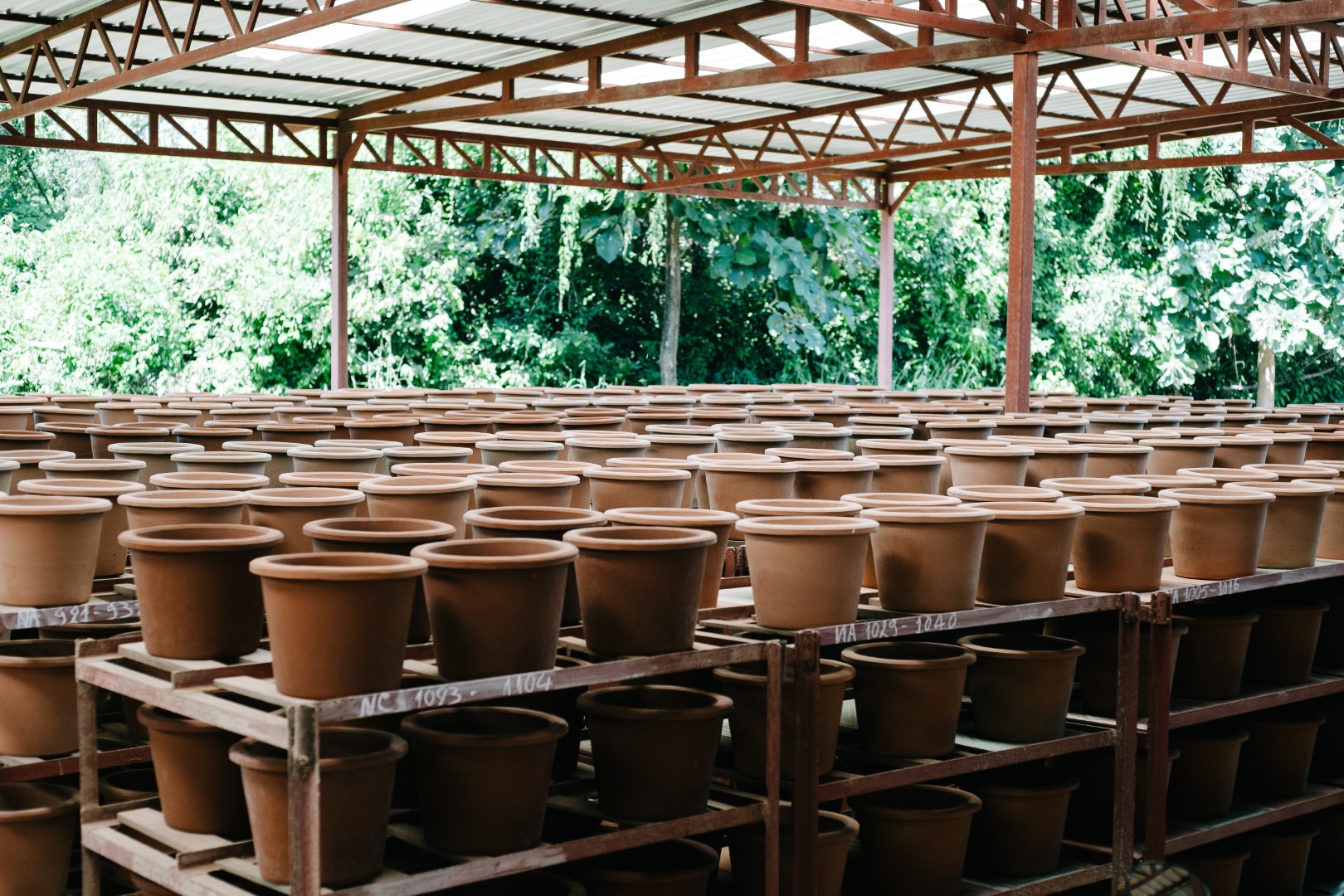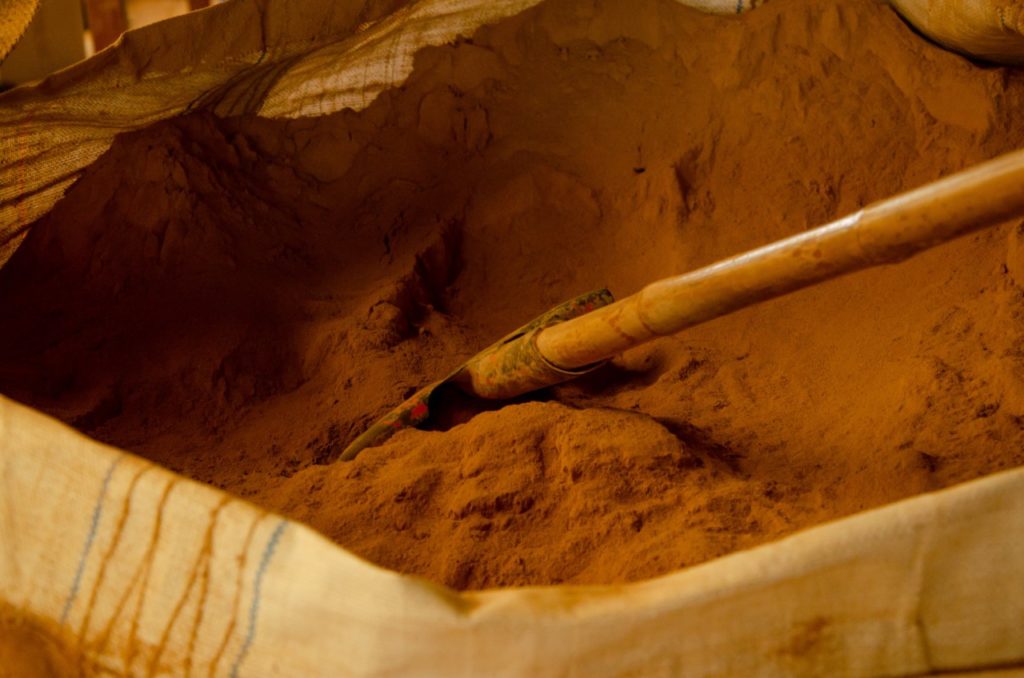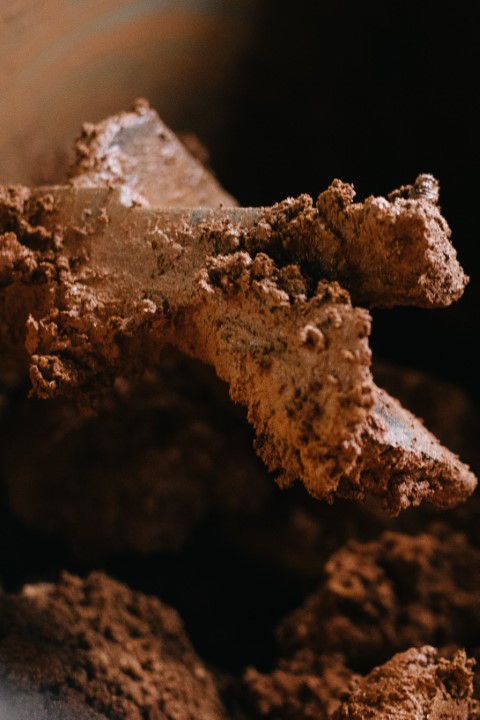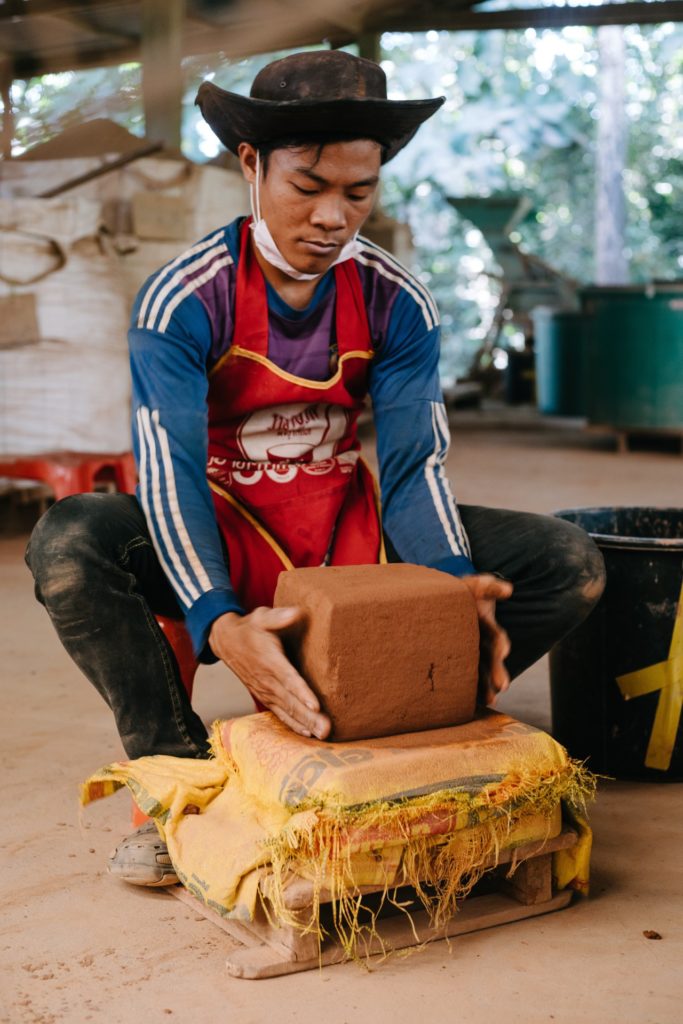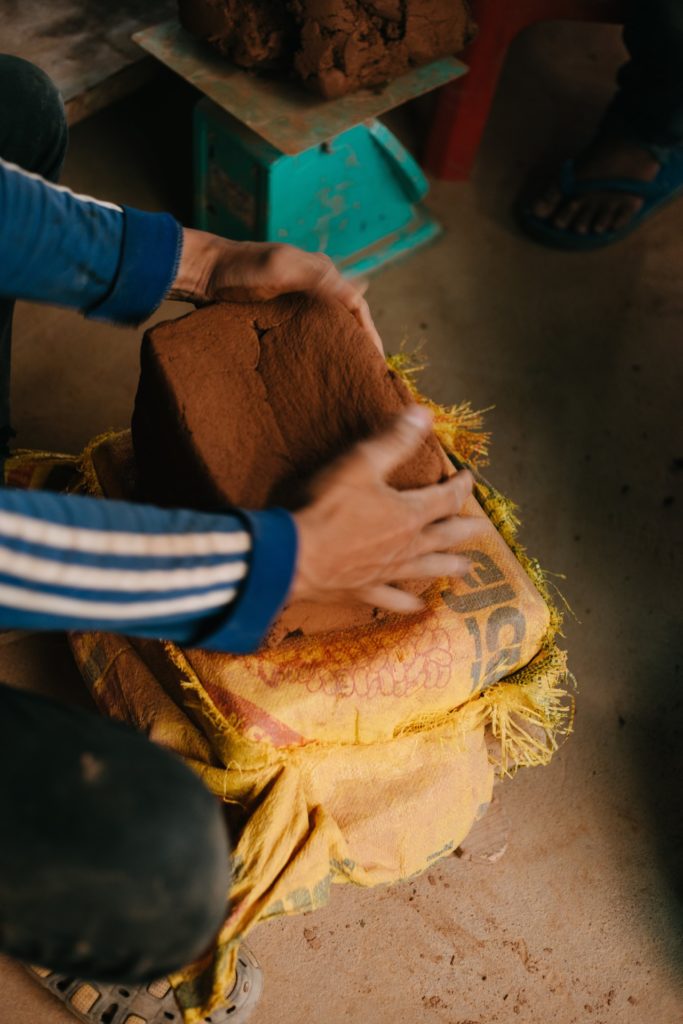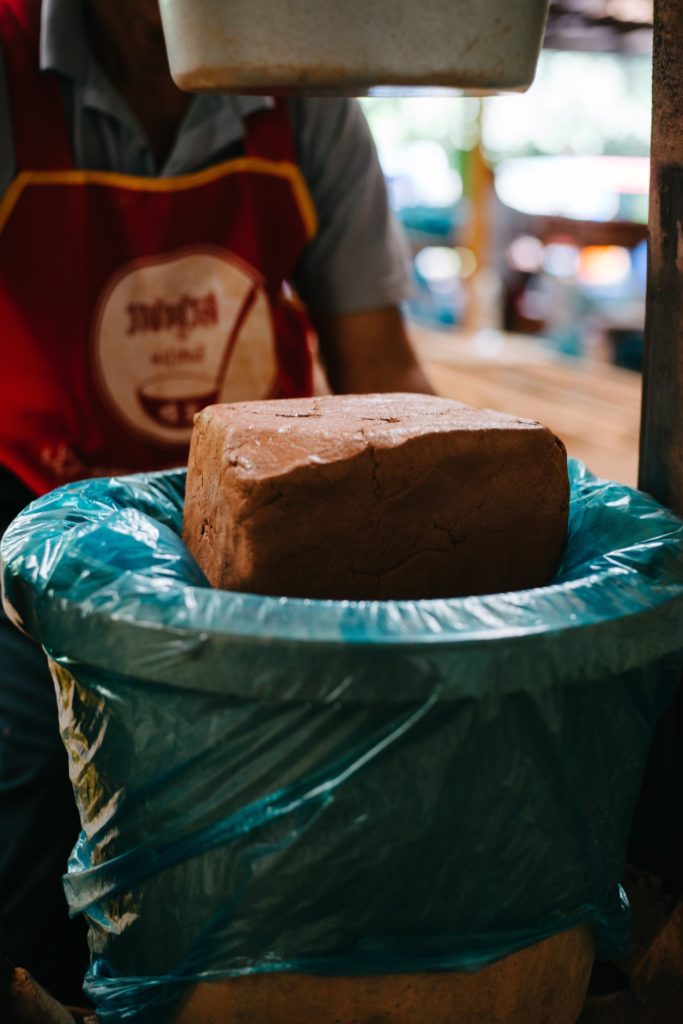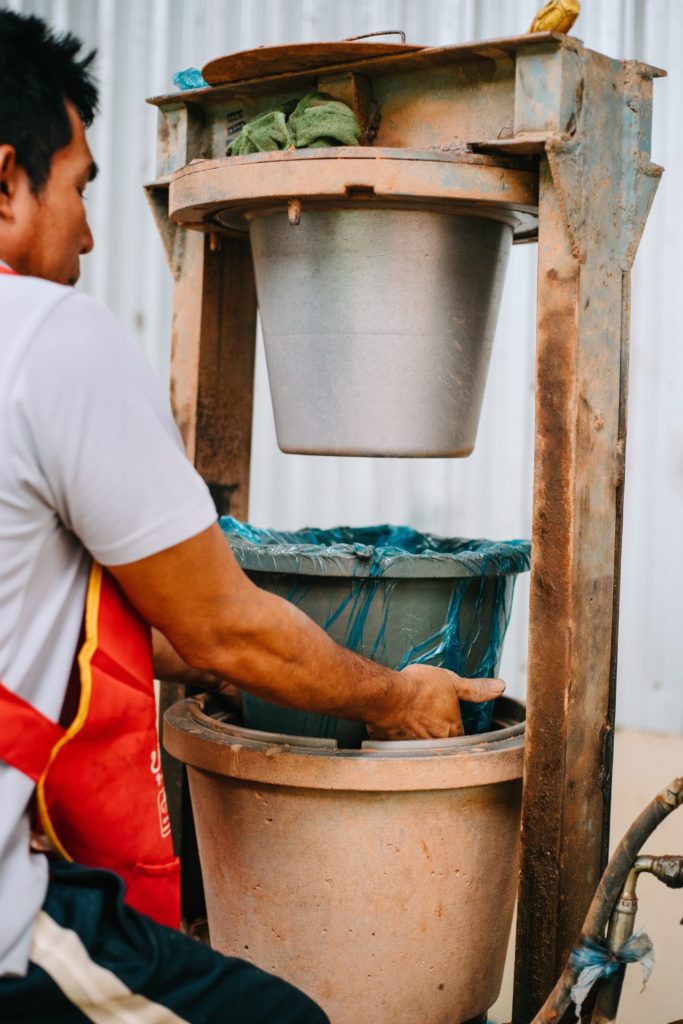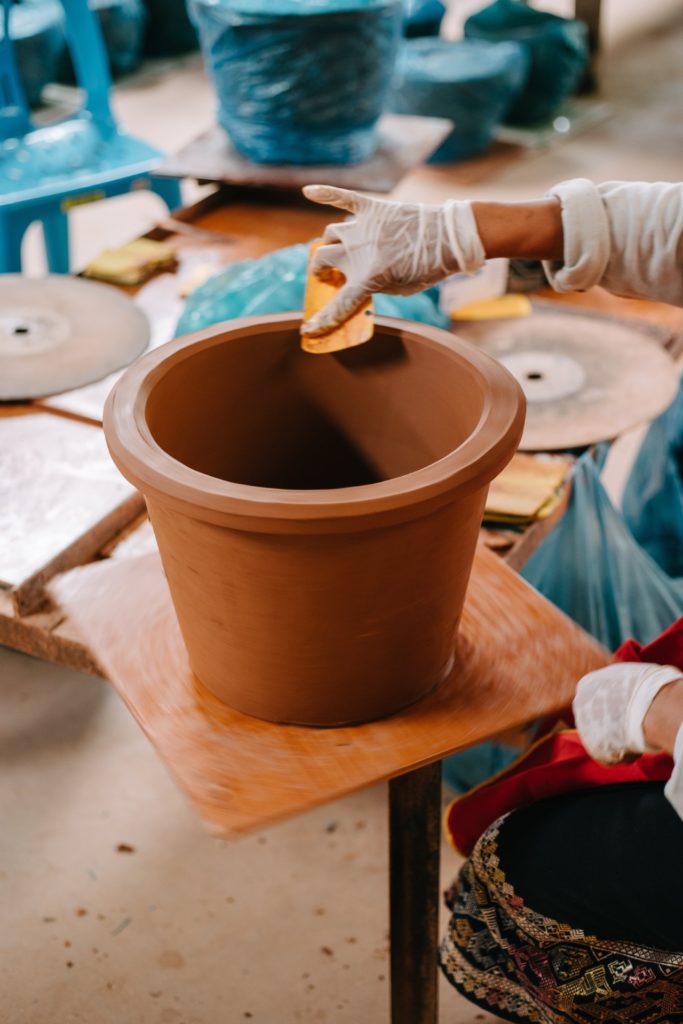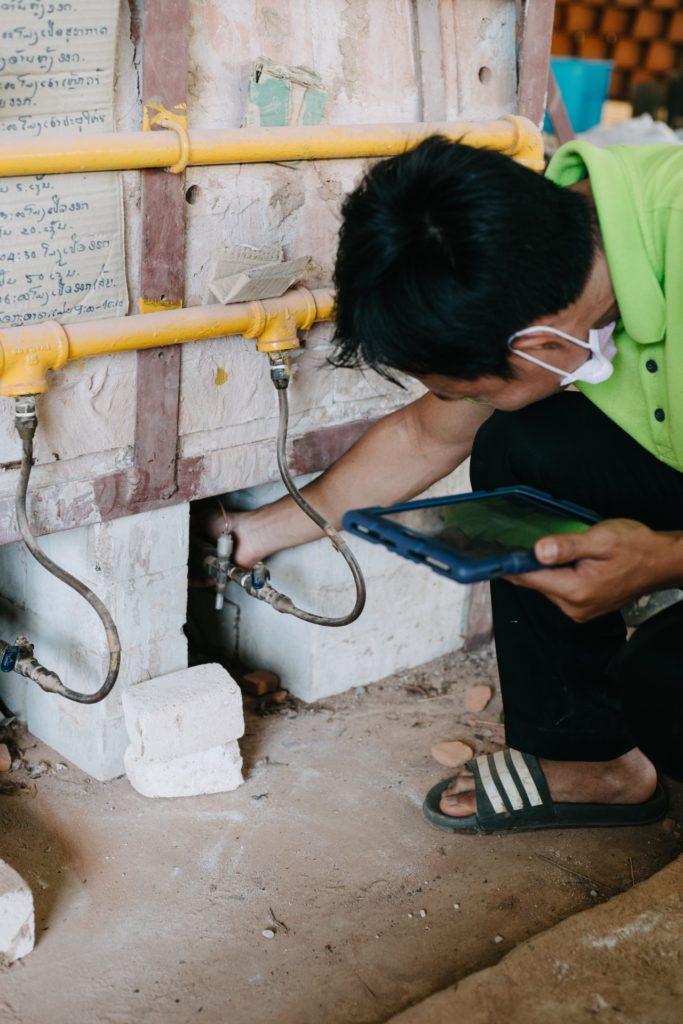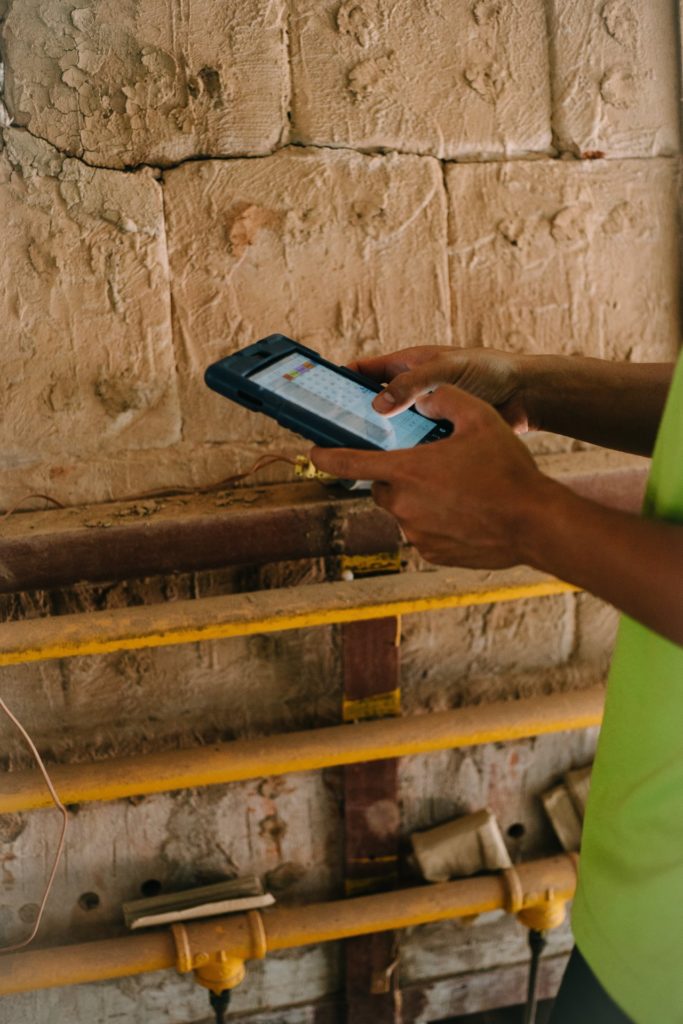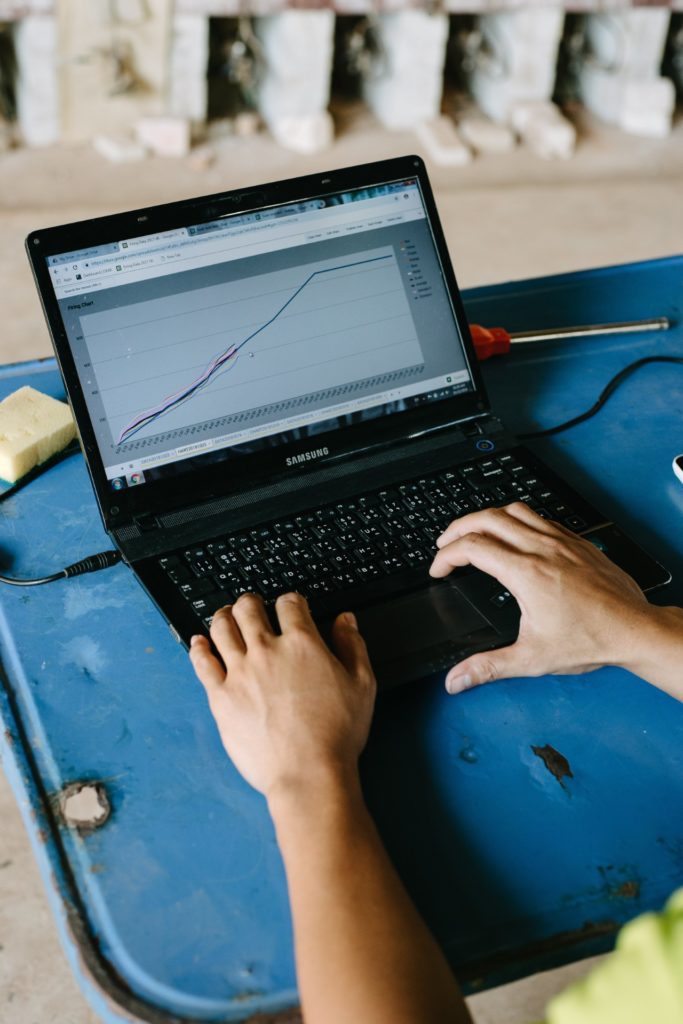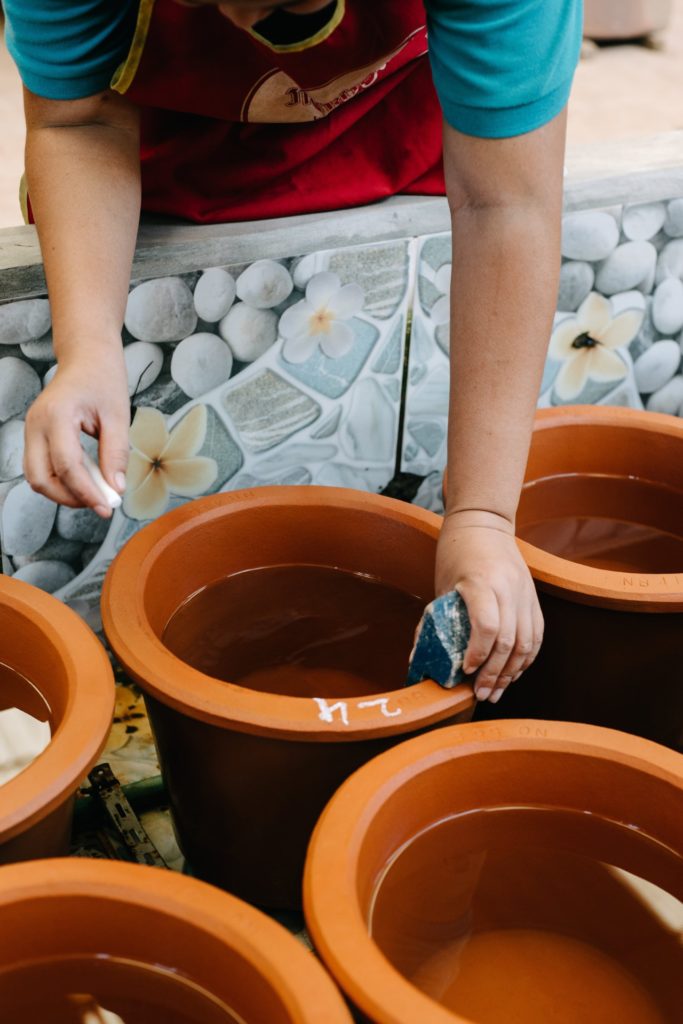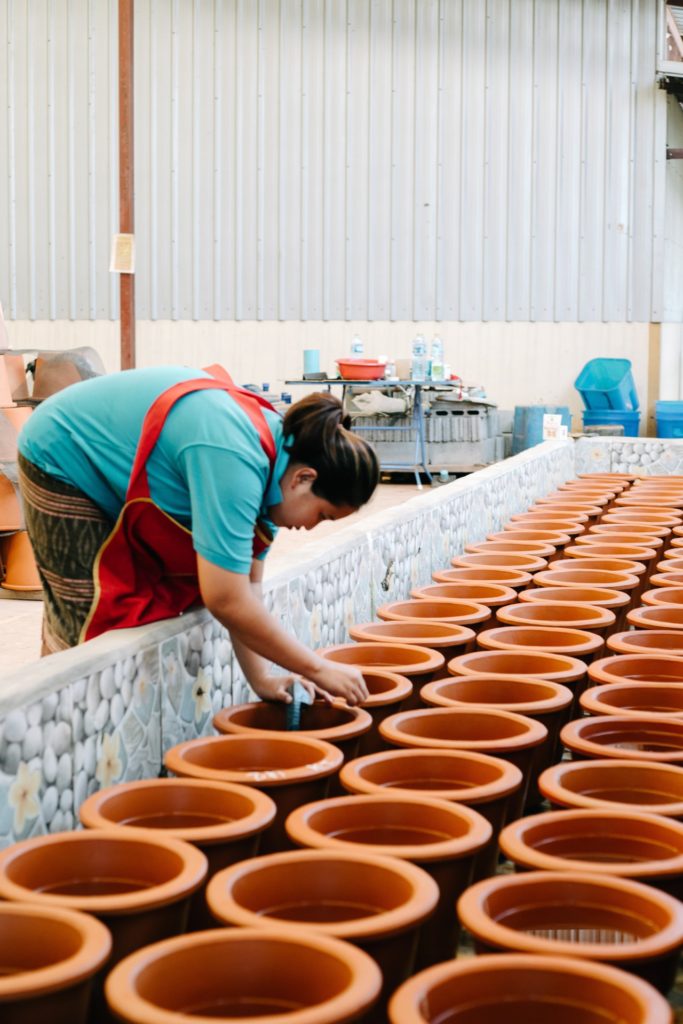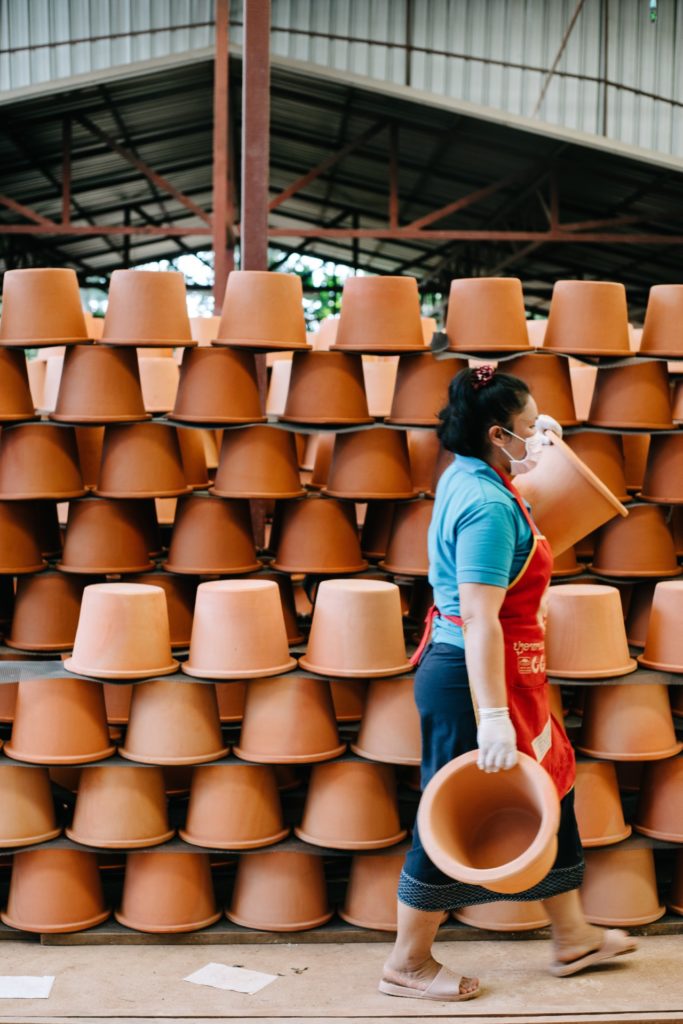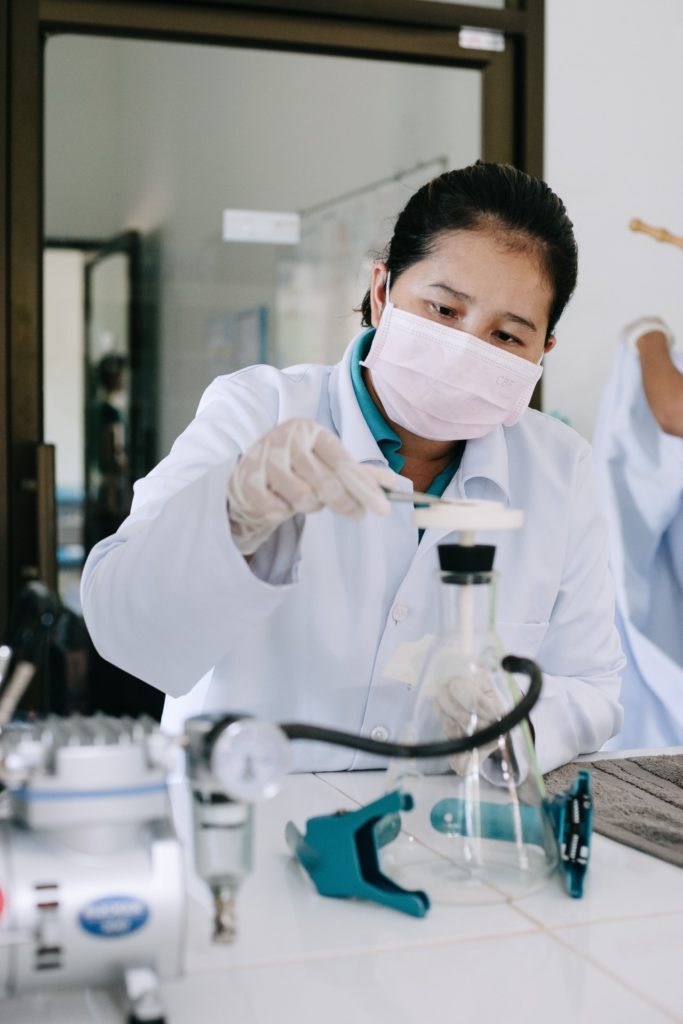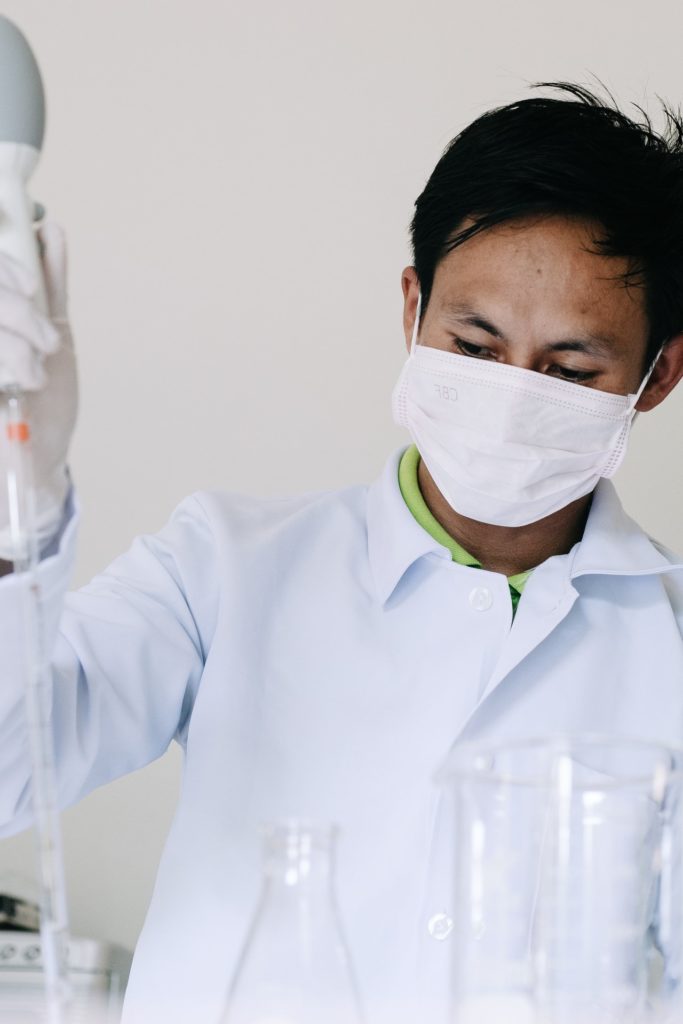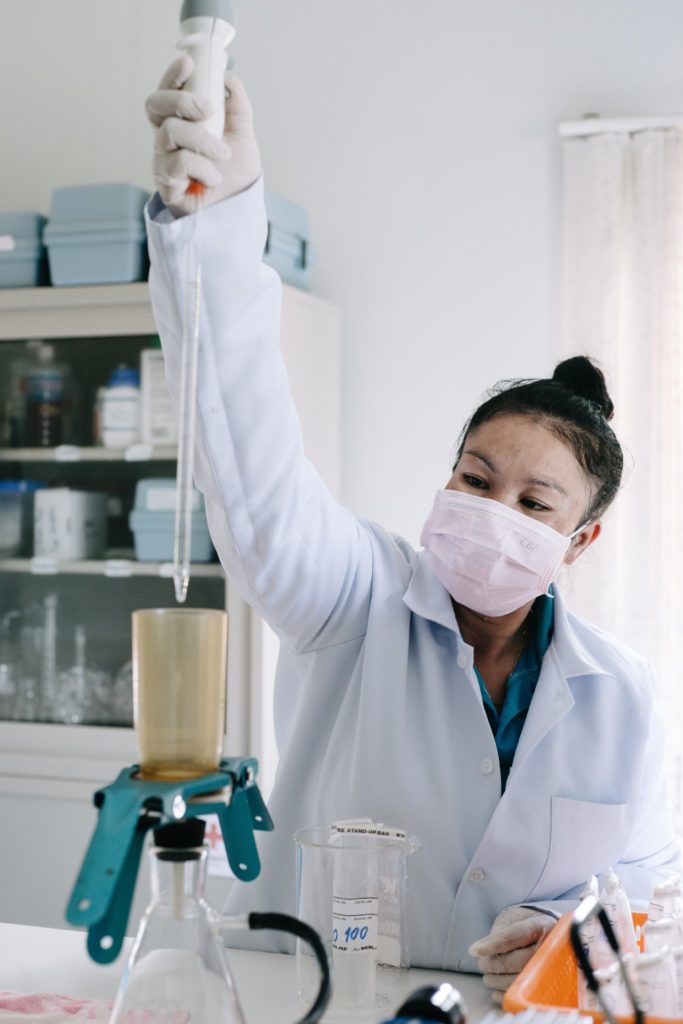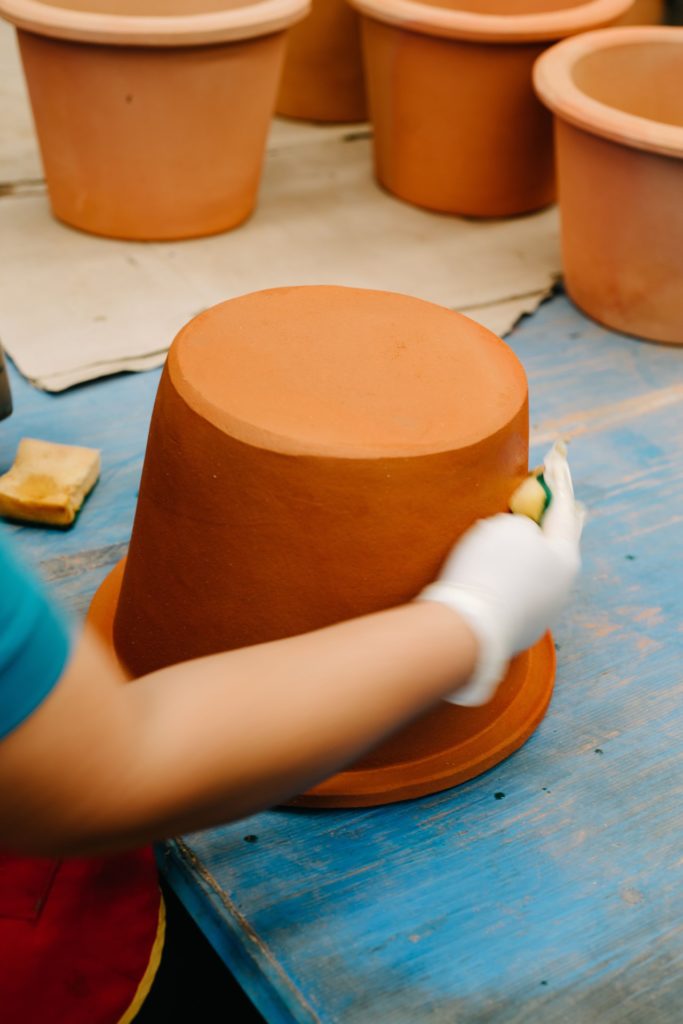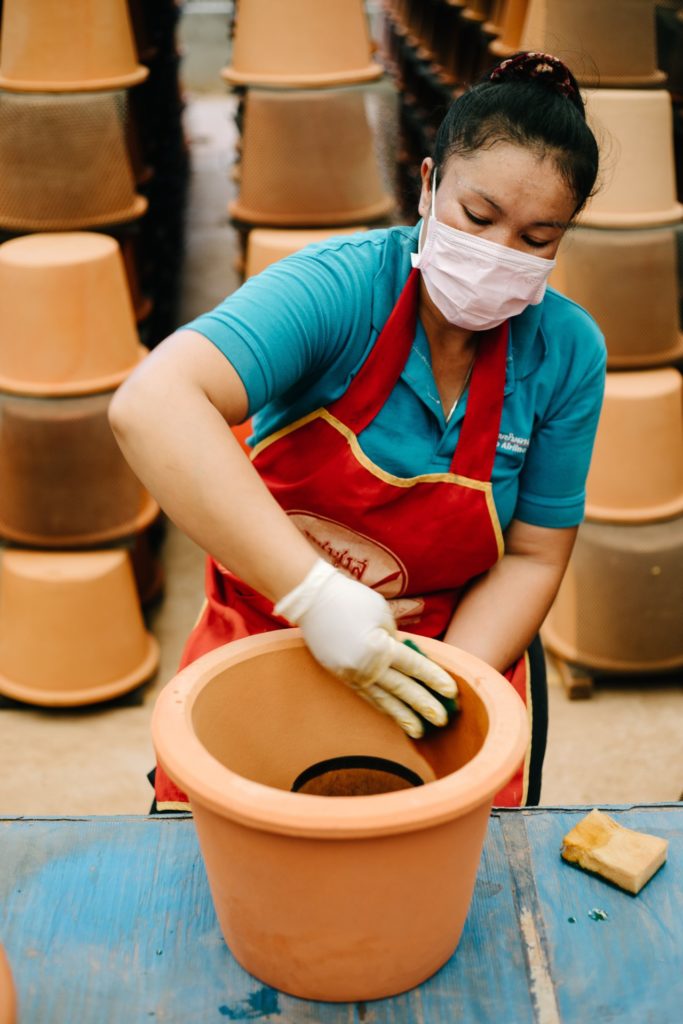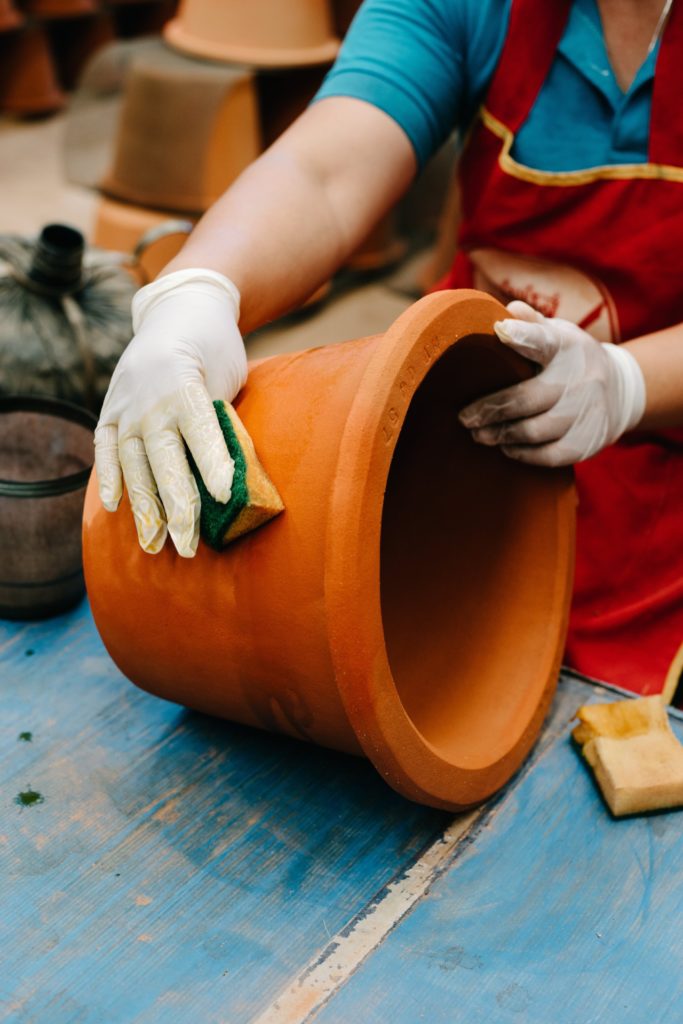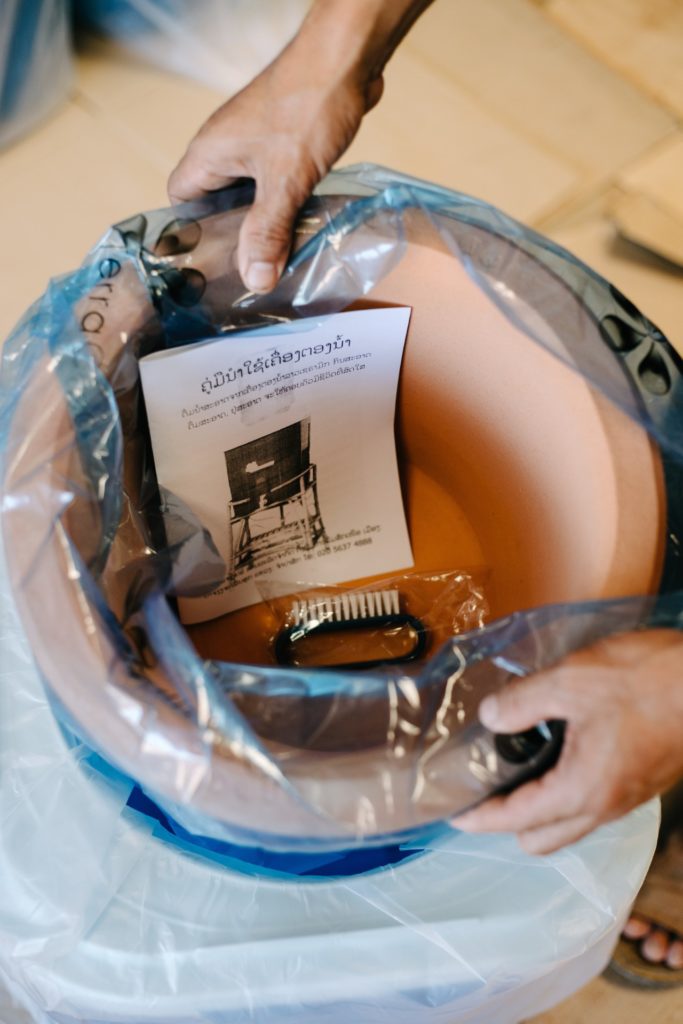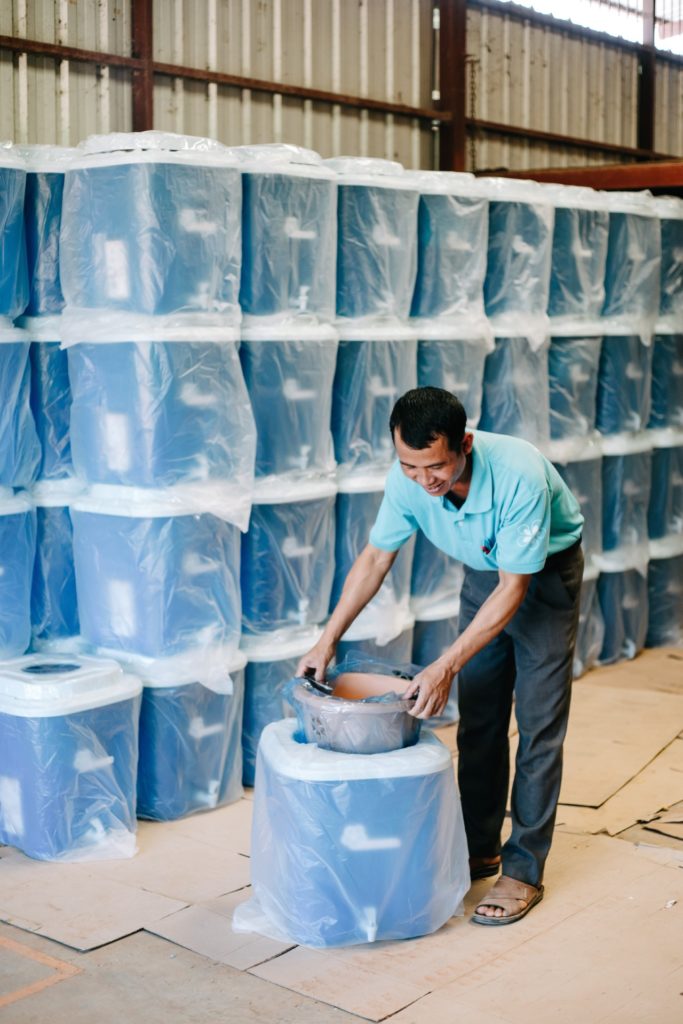Each filter is made by our production staff in Lomsakneua, Laos. A filter takes around 8 weeks to produce from start to finish, mostly due the need for the clay to dry prior to firing.
Ceramic water filters need to be produced with careful quality control to ensure that they can remove contaminants and provide a useful quantity of water for a family. Ceramic is naturally porous but to increase the porosity to a precise level, ground organic materials are added.
In Laos, the local organic material is sticky rice husk. Specially selected terracotta clay is ground into a powder and these two main ingredients are mixed with water to form the moldable blocks that become a filter.
Mechanical pressing in a mold makes the traditional pot shape; staff then smooth and clean the surface.
Once these shaped pots are dried, they enter a gas-fired kiln where a firing technician heats them along a prescribed temperature curve over a 12-hour period. This burns out the rice husk, locks in the network of pores and forms the ceramic.
These ceramic filters undergo a visual, audible and two types of hydrology evaluations. Filters that have a uniform network of correctly sized pores pass on to the next stage and some of each group are taken to our on-site laboratory for confirmed bacteriological testing.
Passing filters are then infused with colloidal silver suspended in water. This silver water absorbs throughout the pore network inside and out; as the water evaporates, silver is left coating the pores as a permanent bacteriacide.
After a final QA check, filters are paired with food-grade 36-liter plastic receptacle, tap, filter fitting ring and lid. These help prevent re-contamination, getting clean water as close to the cup as possible. Stands and filling bottles make the sets complete and they are sent by truck and motorbike around the country.


